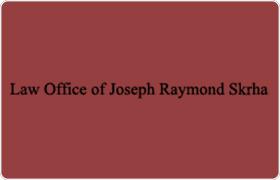Tuntutuliak Felony Lawyer, Alaska, page 3
Sponsored Law Firm
-
 x
x

Click For More Info:
-
Law Office of Joseph Raymond Skrha
110 N Willow St Suite 137 Kenai, AK 99611» view mapCriminal Defense Law Vigorously Protecting Your Rights
You need an attorney with criminal defense knowledge who will vigorously protect your rights and interests.
800-950-6960
Not enough matches for Tuntutuliak Felony lawyer.
Below are all Tuntutuliak lawyers.
William T Montgomery
General Practice
Status: In Good Standing *Status is reviewed annually. For latest information visit here
Robert M Schiesser
General Practice
Status: In Good Standing *Status is reviewed annually. For latest information visit here Licensed: 9 Years
Stephen Wallace
General Practice
Status: In Good Standing *Status is reviewed annually. For latest information visit here Licensed: 36 Years
Monroe Tyler
General Practice
Status: In Good Standing *Status is reviewed annually. For latest information visit here Licensed: 9 Years
Jason Christian Conrad
General Practice
Status: In Good Standing *Status is reviewed annually. For latest information visit here Licensed: 4 Years
R. Christopher Knowles
General Practice
Status: In Good Standing *Status is reviewed annually. For latest information visit here
Spencer Curtis Wilson
General Practice
Status: In Good Standing *Status is reviewed annually. For latest information visit here
Nicole Franklin
Employment
Status: In Good Standing *Status is reviewed annually. For latest information visit here Licensed: 13 Years
Joy Kaitlyn Anderson
Family Law, Employment
Status: In Good Standing *Status is reviewed annually. For latest information visit here Licensed: 15 Years
Erik B. Davies
General Practice
 Joseph Skrha Kenai, AK
Joseph Skrha Kenai, AK Practice AreasExpertise
Practice AreasExpertise